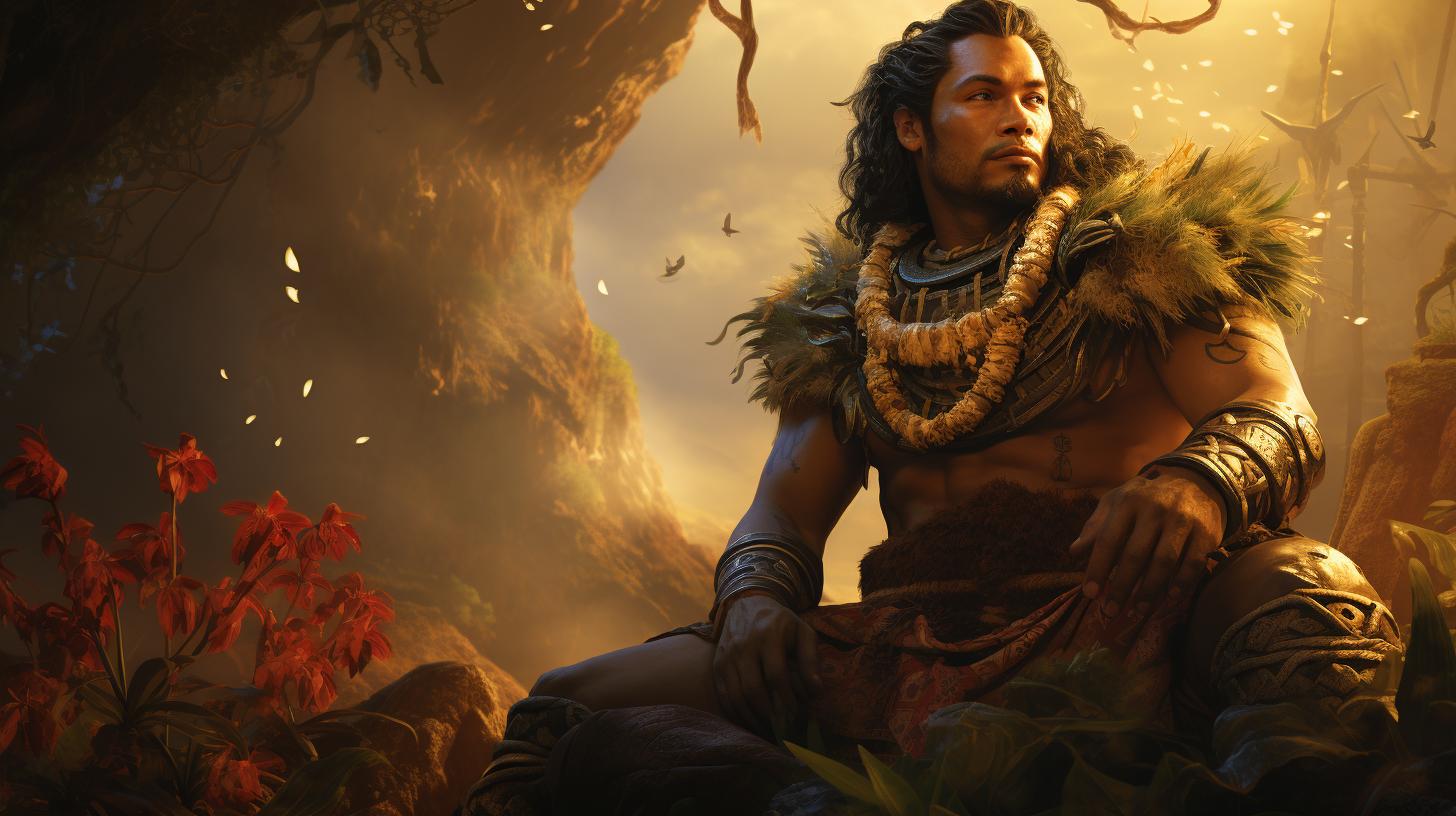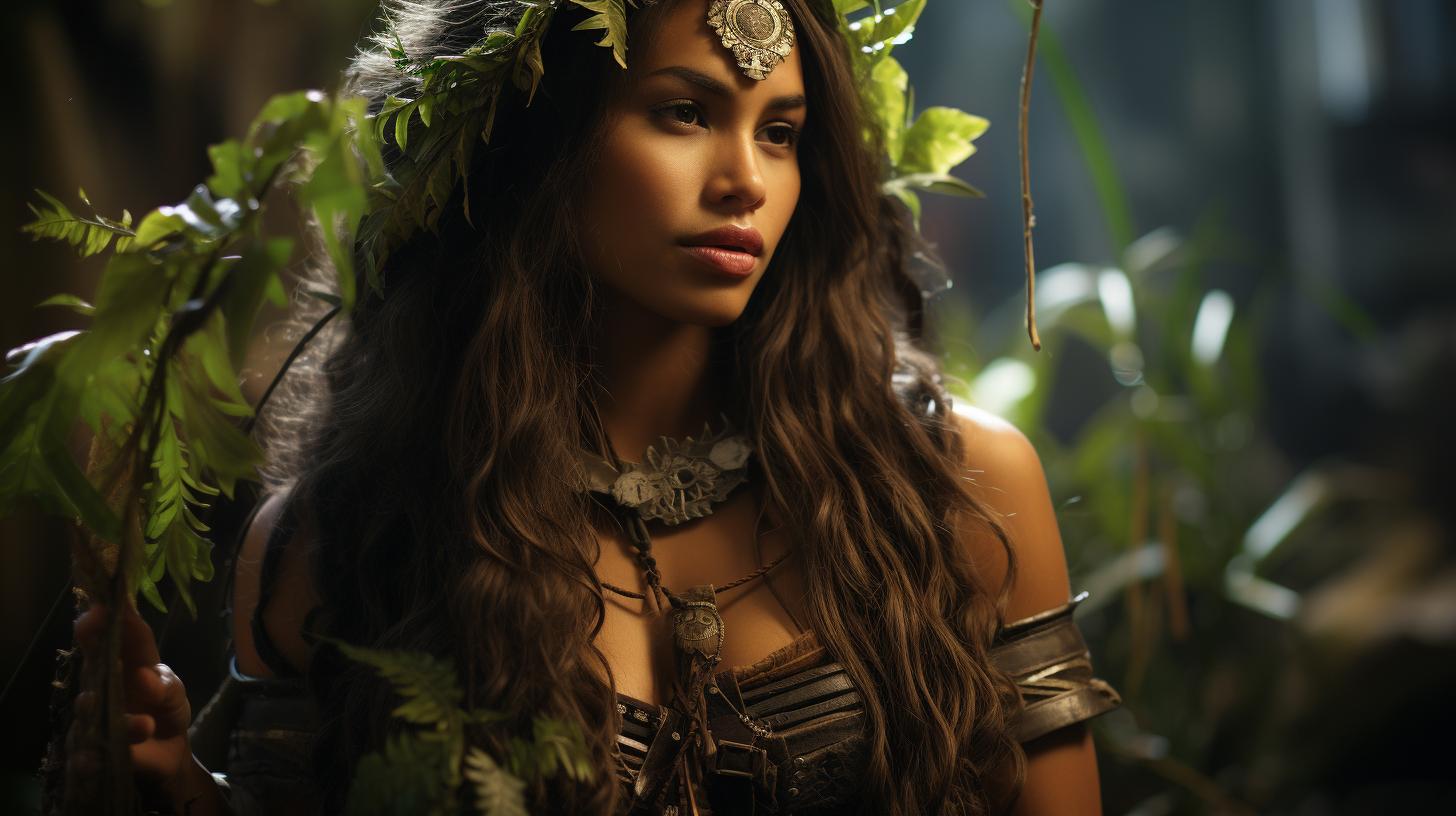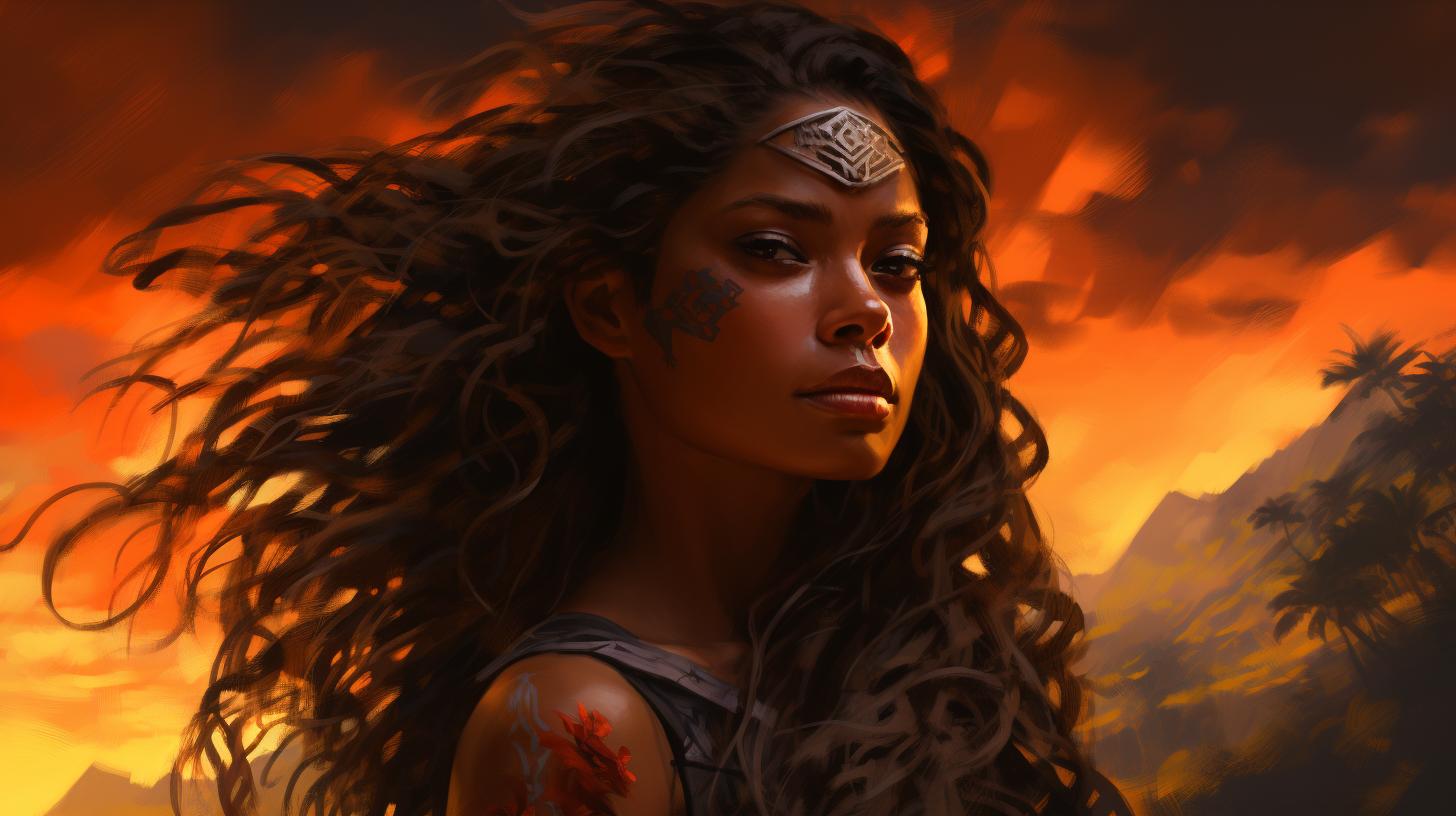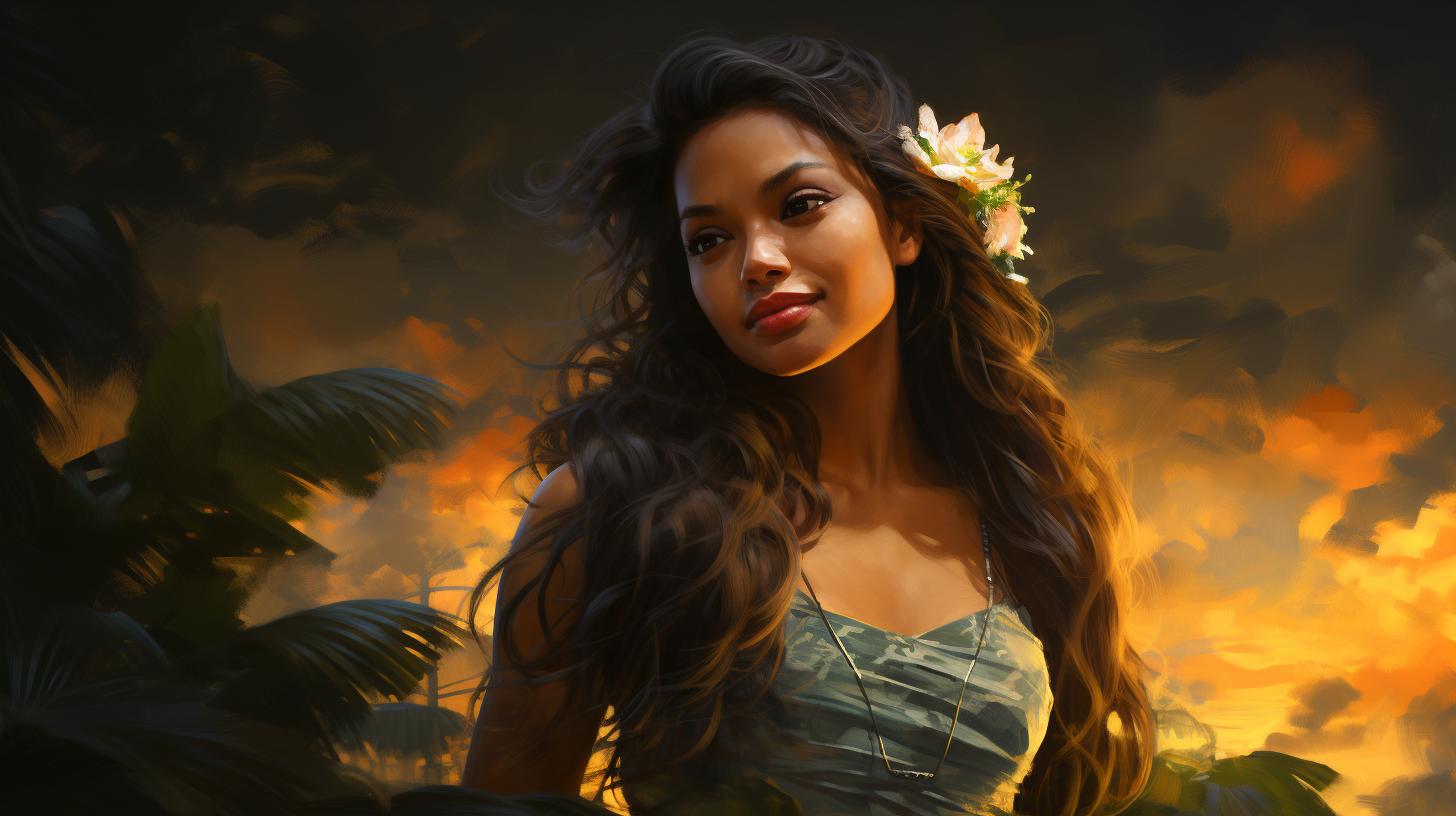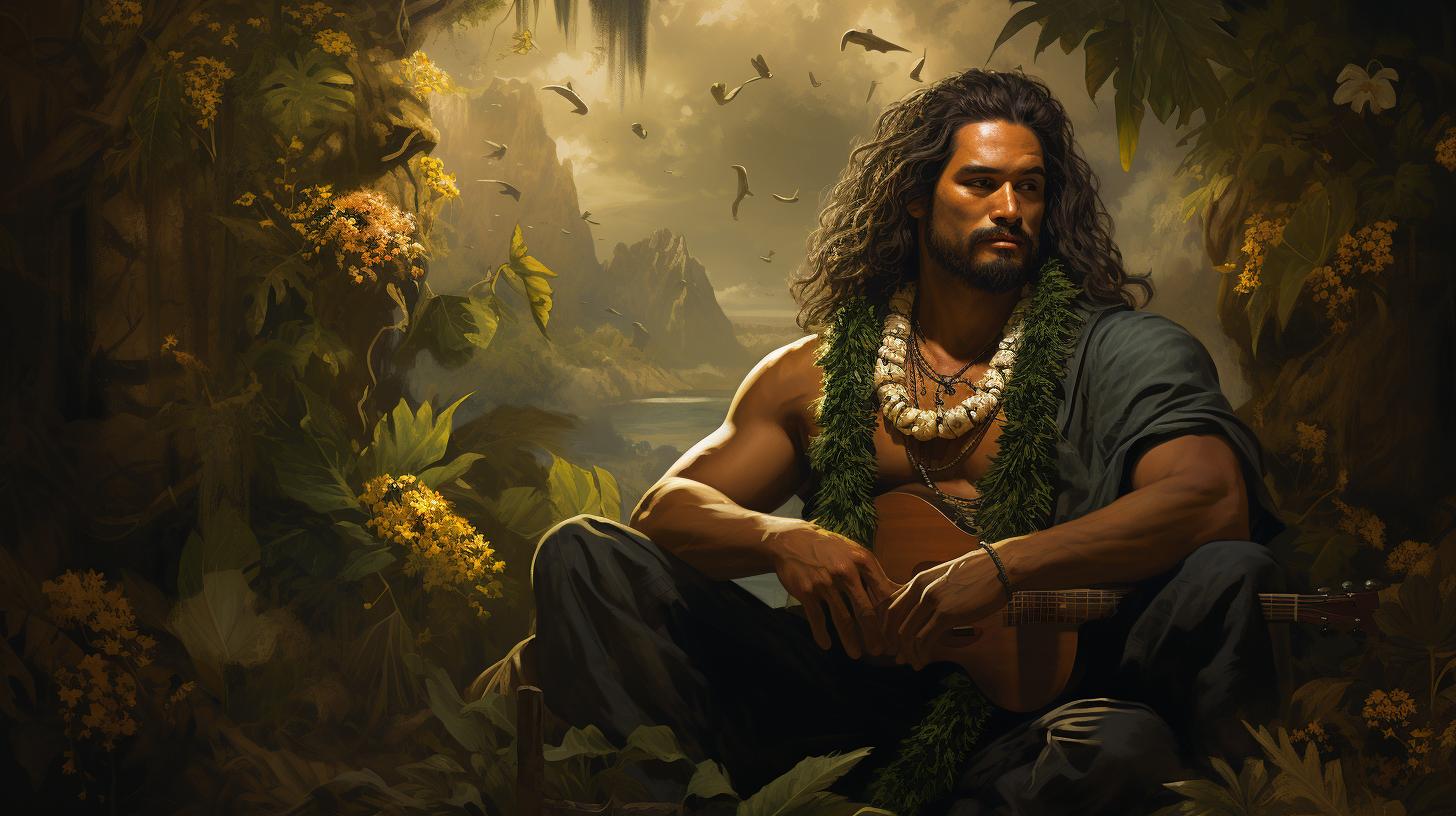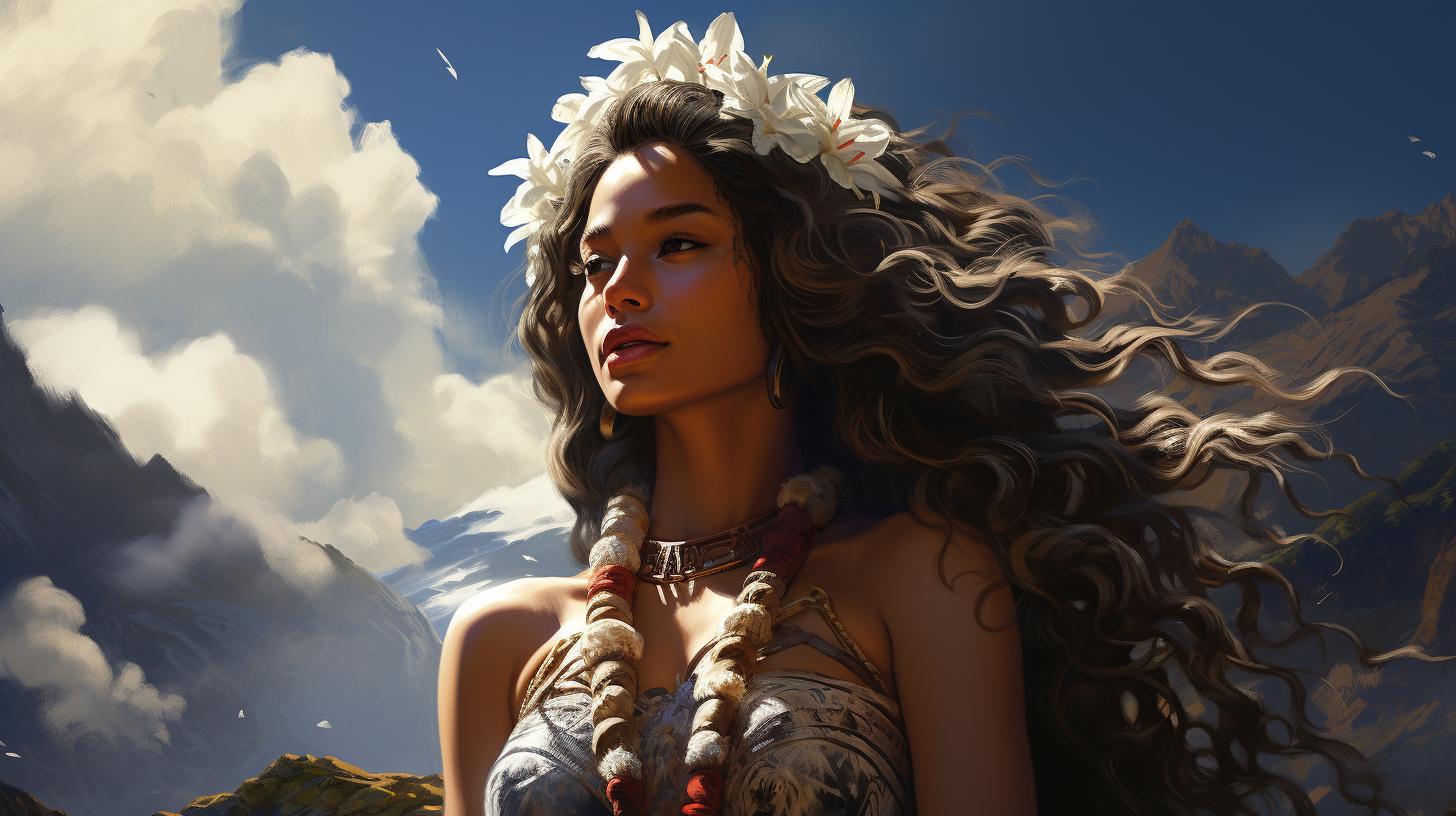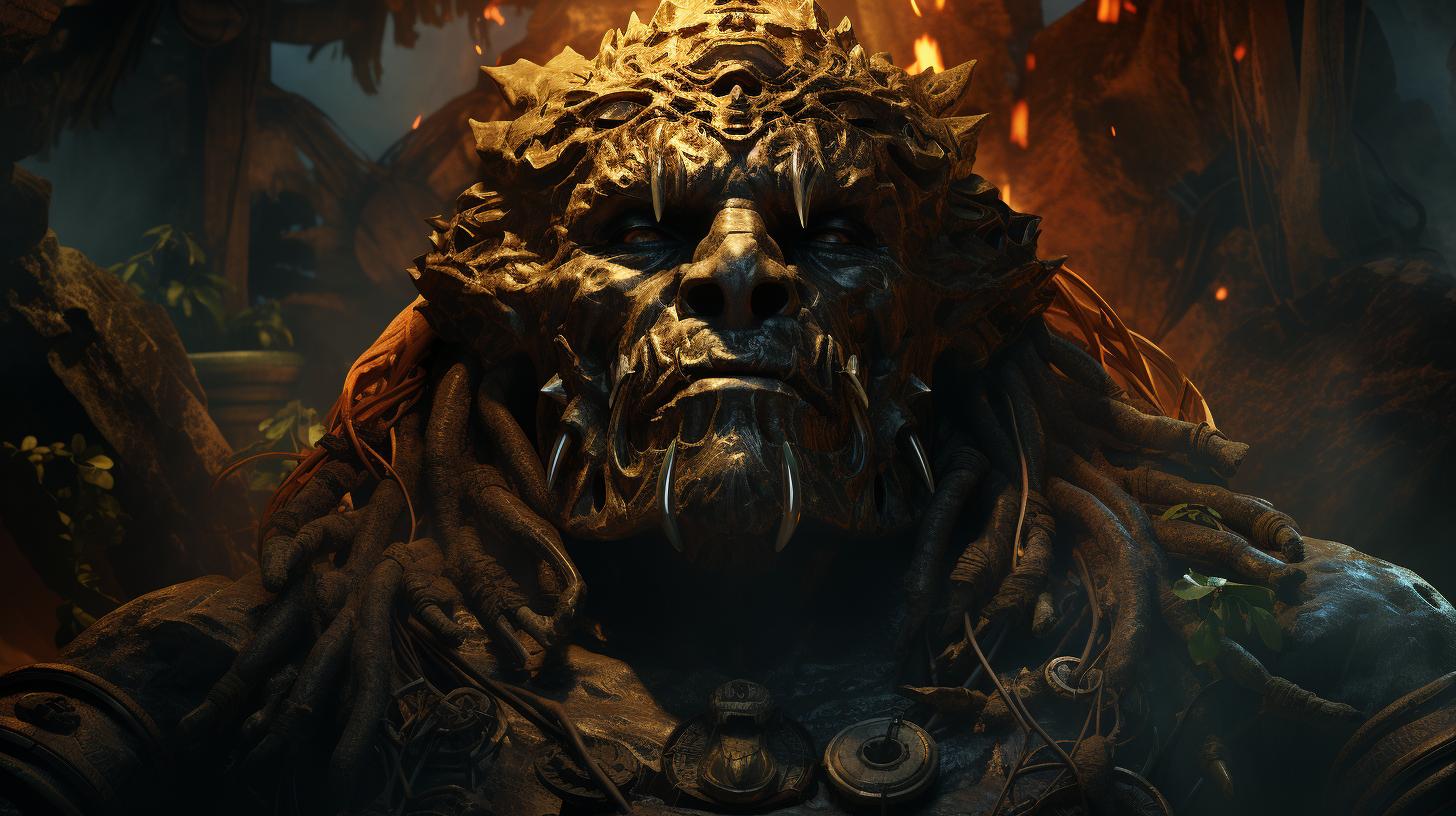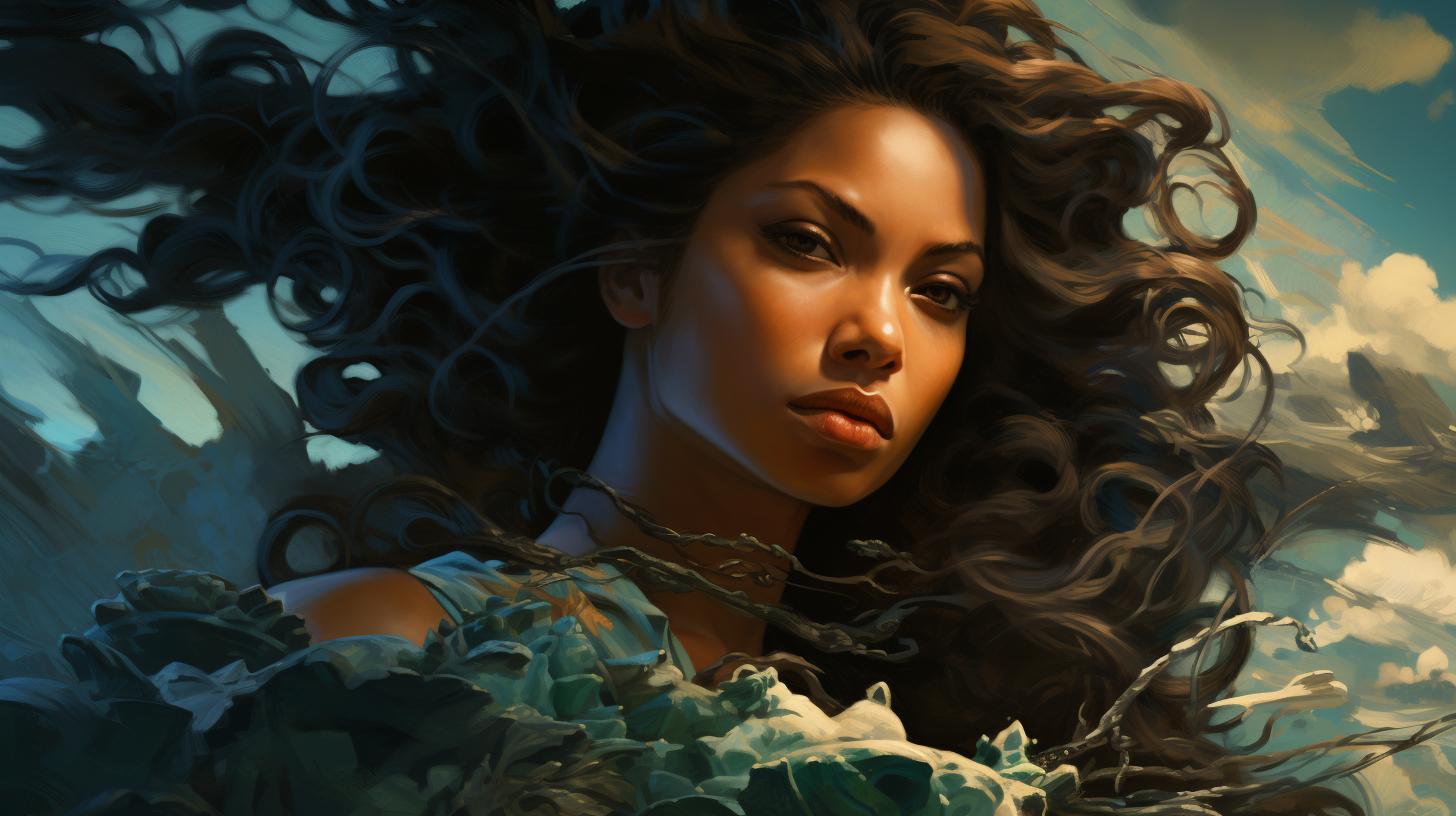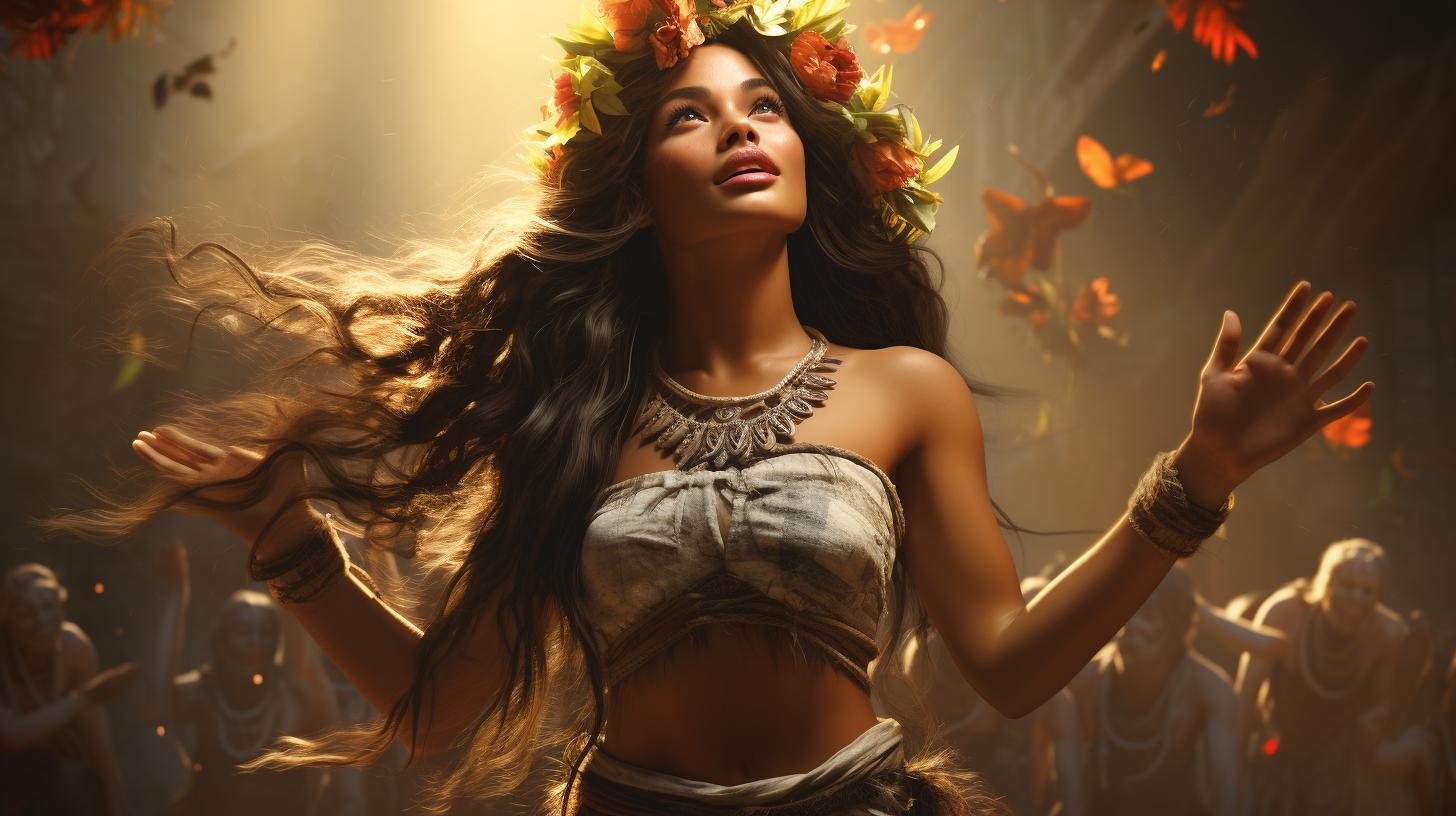Maui, the Polynesian demigod
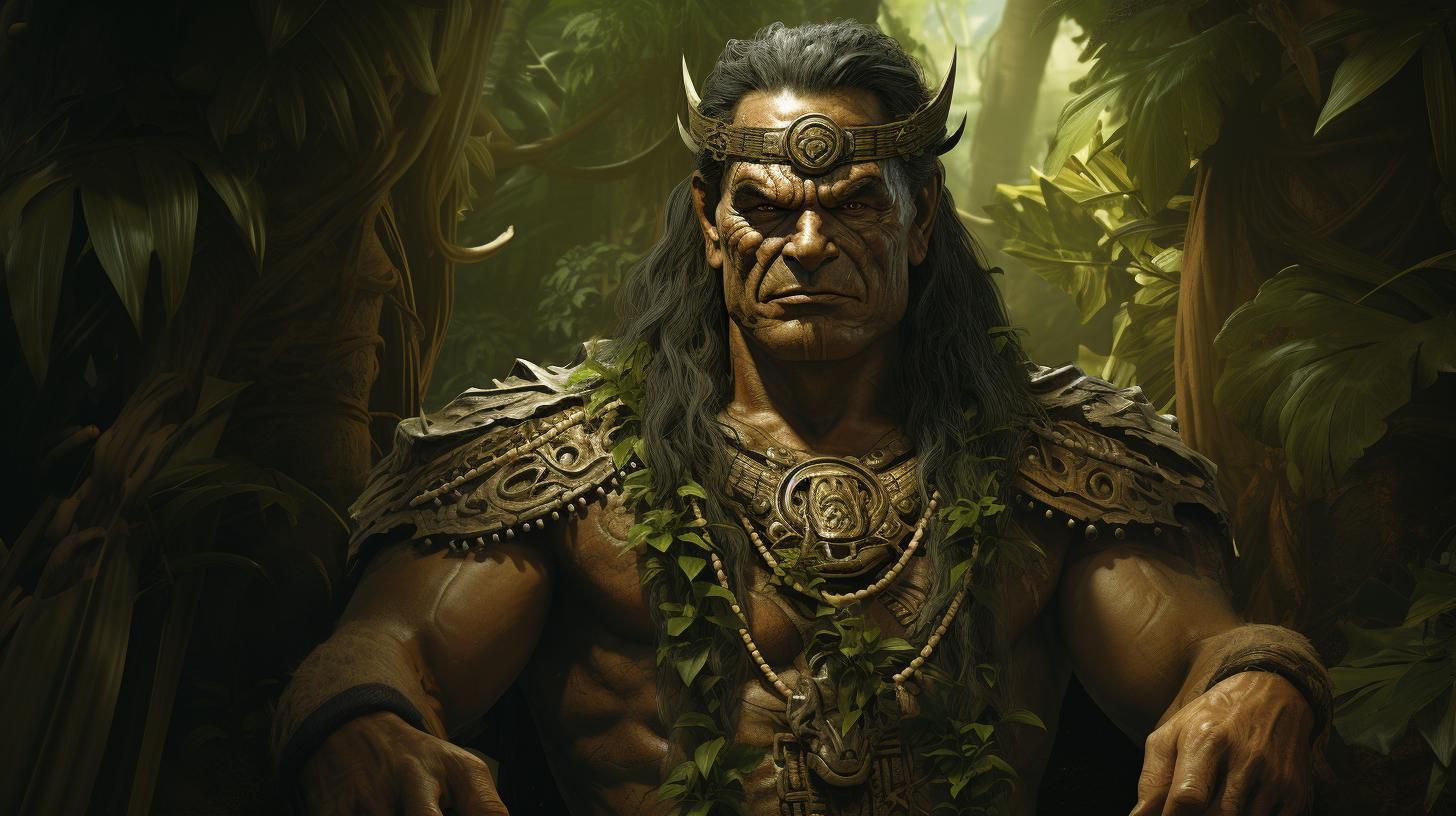
Maui, the Polynesian demigod, holds a prominent place in Polynesian mythology and culture. Known for his legendary exploits and connection to nature, Maui’s stories have captivated generations. This article delves into Maui’s origins, his magical fish hook, and his quests, shedding light on his symbolic meaning and cultural significance.
Unveiling the mysteries and debunking misconceptions, we explore how Maui’s legacy continues to shape Hawaiian and Polynesian communities today. Join us on this exploration of the captivating tales and teachings of Maui, the Polynesian god.
Maui, the Polynesian Demigod
Maui, known as the Polynesian demigod, holds a significant place in Polynesian mythology and culture. This section explores the origins, mythology, and cultural role of Maui, shedding light on his captivating story.
The Origins of Maui
The origins of Maui trace back to ancient Polynesian legends and oral traditions. According to these tales, Maui is believed to be the son of the sky god, Makeatutara, and a mortal woman named Taranga.
Maui’s birth was indeed extraordinary, as he was born prematurely and thrown into the ocean by his mother. However, the god of the ocean, Tangaroa, saved him and raised him as his own.
Maui in Polynesian Mythology
Maui’s presence is prominent in Polynesian mythology, woven into legends and stories from different Pacific islands. He is often depicted as a mischievous trickster, always seeking to achieve greatness and help humanity in various ways.
Maui is revered for his cunning, intelligence, and resourcefulness, which he uses to navigate through challenges and overcome obstacles.
Maui’s Role as a Culture Hero
Maui assumes the role of a culture hero, revered for his significant contributions to Polynesian society. He is known for his feats such as creating the islands, capturing the sun, and harnessing the power of the ocean.
Alongside these extraordinary accomplishments, Maui also imparts valuable lessons and teachings, embodying the ideals of bravery, wisdom, and resilience.
The Legends of Maui
Maui, the Polynesian demigod, is renowned for his extraordinary adventures and exploits. His daring exploits have left an indelible mark on the mythology and folklore of Polynesian cultures. In this section, we delve into the captivating tales of Maui and explore the legendary status he holds among Polynesian communities.
Maui’s Adventures and Exploits
Maui’s Adventures and Exploits
Maui’s courage and resourcefulness are showcased through a series of incredible adventures. These feats include his involvement in the creation of the islands, his quest to harness the Sun, and his encounters with the mighty ocean itself.
Maui and the Creation of the Islands
Legend has it that Maui used his magical powers to fish the islands from the depths of the ocean, forming the Polynesian archipelago as we know it today.
Maui and the Sun
In his audacious pursuit to lengthen the days, Maui successfully snared the Sun with his enchanted fish hook, forcing it to slow its course across the sky.
Maui and the Ocean
Maui displayed his immense strength and bravery through his battle with the powerful ocean. He sought to control the tides and waves, leaving his mark on the unpredictable forces of nature.
Maui’s Magical Fish Hook
Maui’s Magical Fish Hook
Central to Maui’s heroic quests is his mighty fish hook, a tool of immense power and symbolism.
2.2.1 The Legend of Maui’s Fish Hook
According to legend, the fish hook was a gift from the gods.
With its supernatural abilities, Maui used the hook to perform miraculous tasks and achieve great feats.
2.2.2 The Powers and Symbolism of the Hook
The hook symbolized Maui’s connection to the forces of nature and his ability to shape the world around him.
It served as a representation of strength, determination, and the embodiment of his divine powers.
Maui’s Quests and Accomplishments
Maui, the Polynesian demigod, embarked on numerous quests and achieved remarkable feats throughout his mythical existence. These endeavors not only contributed to the cultural heritage and oral traditions of Polynesia but also left an indelible mark on the Hawaiian Islands.
Maui’s Journey to the Underworld
One of Maui’s most daring adventures was his journey to the underworld, where he sought to gain immortality for humanity. Descending into the realm of the gods, Maui faced perilous challenges, brave spirits, and cunning guardians.
His journey exemplified his determination and selflessness in his quest to benefit mankind.
Maui’s Feats in Greek Mythology
Interestingly, Maui’s exploits were not confined solely to Polynesian mythology. Greek mythology also recognizes him as a legendary figure. In Greek tales, Maui played a prominent role in stealing fire from the gods, a significant act that brought advancement and enlightenment to humanity.
The Influence of Maui in Polynesian Culture
Maui’s adventures and accomplishments continue to shape Polynesian culture to this day. His stories are passed down through generations, perpetuating his legacy of bravery, intellect, and resilience. Polynesian communities honor Maui by upholding his teachings, customs, and values, ensuring his enduring presence in their traditions.
Maui’s Legacy in the Hawaiian Islands
In the Hawaiian Islands, Maui’s legacy is deeply rooted in the cultural fabric. He is revered as both a cultural hero and a divine figure who played a pivotal role in the creation and shaping of the Hawaiian archipelago.
His feats, such as capturing the sun and fishing up the islands, not only establish his godlike status but also provide explanations for the natural phenomena observed in the Hawaiian environment.
From his journey to the underworld and feats in Greek mythology to his profound influence on Polynesian culture and lasting legacy in the Hawaiian Islands, Maui’s quests and accomplishments stand as testaments to his enduring significance and cultural impact.
The Symbolic Meaning of Maui
The Polynesian demigod Maui carries profound symbolic meaning in Hawaiian and Polynesian culture. His legends and stories have contributed to shaping the belief systems and values of these communities. Through his various attributes and actions, Maui represents more than just a mythical figure.
He embodies qualities that inspire and resonate with individuals and communities, connecting them to nature, spirituality, and their ancestral heritage.
Maui as a Symbol of Strength and Good Fortune
Maui is often regarded as a symbol of strength and resilience. His extraordinary feats and triumphs demonstrate the power of determination and bravery. By overcoming formidable challenges, such as lifting the sky or capturing the sun, Maui showcases the human potential to achieve greatness.
In Polynesian culture, he serves as a reminder that with perseverance and courage, anyone can surmount obstacles and achieve success.
Maui’s Connection to Nature and the Elements
Maui’s deep connection to nature is evident in his ability to control and command the elements. From his mastery over the ocean to his manipulation of the winds, he epitomizes the harmonious relationship between humans and the natural world.
Maui’s connection to nature serves as a reminder of the interdependent bond between humankind and the environment, emphasizing the importance of respecting and preserving the Earth for future generations.
Maui’s Deification and Worship
Throughout Polynesian history, Maui has been revered and worshipped as a divine figure.
His status as a demigod reflects the spiritual reverence people have for his mythological significance. Maui’s deification symbolizes the belief in higher powers and the interconnectedness between mortals and the divine.
His worship is an expression of gratitude, seeking his guidance and protection in various aspects of life, including fishing, agriculture, and navigation.
The Impact of Maui on Modern Society
Maui continues to leave an indelible mark on modern society, particularly in the Hawaiian and Polynesian communities. His cultural significance extends beyond mythology and spirituality, permeating various aspects of contemporary life.
From artwork and literature to tourism and branding, Maui’s image and symbolism have become iconic representations of Hawaiian and Polynesian identity. His stories and teachings serve as a source of inspiration, pride, and connection for individuals and communities, fostering a sense of cultural continuity and resilience.
The Cultural Significance of Maui
Maui in Polynesian Traditions and Rituals
Within the rich tapestry of Polynesian traditions and rituals, Maui holds a significant place. Revered as a powerful demigod, Maui is often invoked in important ceremonies and gatherings. His presence is felt in chants, dances, and prayers, symbolizing bravery, wisdom, and the connection between humans and the divine.
Polynesian communities continue to honor and pay homage to Maui through their cultural practices, keeping his legacy alive and vibrant.
Maui’s Importance in Art and Literature
The influence of Maui extends beyond rituals and traditions into the realm of art and literature. Visual artists, sculptors, and tattooists often depict Maui in their works, capturing his dynamic character and mythical aura.
Additionally, writers and storytellers draw inspiration from Maui’s sagas, weaving his adventures and teachings into captivating narratives that educate and entertain audiences. Through various artistic expressions, Maui continues to inspire creativity and foster a deeper understanding of Polynesian culture.
Maui’s Lessons and Teachings for Humanity
Embedded within Maui’s legends are profound lessons and teachings for humanity. His quests and accomplishments serve as allegories for bravery, determination, and perseverance in the face of adversity. Maui’s stories offer wisdom on the importance of respect for nature, harmonious coexistence, and the pursuit of knowledge.
These invaluable teachings continue to resonate with individuals from diverse backgrounds and can guide us towards a more balanced, interconnected world.
Maui’s Reverence in Hawaiian and Polynesian Communities
Hawaiian and Polynesian communities hold Maui in high regard, appreciating the cultural and spiritual significance he represents. Maui’s revered status is evident in the numerous statues, landmarks, and place names dedicated to him throughout the islands.
His influence extends beyond folklore and mythology, shaping the identity and values of these communities. Maui’s legacy serves as a reminder of the enduring bond between the past, present, and future, strengthening the cultural fabric of Hawaiian and Polynesian societies.
Unveiling the Mysteries of Maui
Exploring the Legends and Lore Surrounding Maui
Delve into the enchanting world of Maui as we explore the rich tapestry of legends and lore that surround this Polynesian demigod. From his epic feats to his magical fish hook, we unravel the captivating stories that have been passed down through generations, shedding light on the fantastical adventures and extraordinary powers of Maui.
Debunking Myths and Misconceptions about Maui
Separating fact from fiction, we debunk common myths and misconceptions about Maui. By examining historical records and cultural sources, we challenge popular beliefs and offer a clearer understanding of Maui’s true nature, dispelling any misconceptions that may have arisen over time.
Understanding the Historical Context of Maui’s Stories
By delving into the historical context of Maui’s stories, we gain valuable insights into the cultural and societal significance of this legendary figure. Uncover the origins of Maui’s tales and discover how they have shaped the beliefs and traditions of Polynesian cultures throughout history.
Shedding Light on Maui’s Significance Today
Maui’s influence continues to reverberate through Hawaiian and Polynesian communities in the present day. Explore how Maui’s teachings and symbolism are embraced, celebrated, and integrated into various aspects of modern society, from art and literature to traditions and rituals.
Gain a greater understanding of Maui’s enduring significance and his enduring role as a cultural icon.
.

